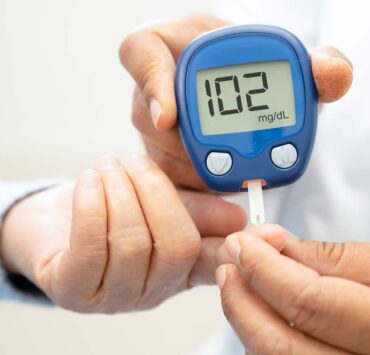November: Diabetes Awareness Month and the Importance of Self-Care

November marks Diabetes Awareness Month, a crucial opportunity to raise awareness about a condition that continues to rise and disproportionately affect individuals with intellectual and developmental disabilities (IDD). According to the World Health Organization (WHO), the number of adults living with diabetes recently surpassed 800 million worldwide, more than quadrupling since 1990.
In the United States, estimates from the Centers for Disease Control and Prevention (CDC) indicate that 38.4 million people—11.6% of Americans—have diabetes. Among people with disabilities, the prevalence is even higher, estimated at 16.2% (about 1 in 6), compared to 1 in 14 people without disabilities.
Within the IDD community, several factors converge to elevate risk. Physical and cognitive challenges often lead to reduced physical activity, especially for those with mobility issues. Inactivity, in turn, increases the likelihood of obesity, high blood pressure, and high cholesterol—all comorbidities strongly linked to the development of Type 2 diabetes.
“The challenge for people with IDD is that they often face compounded barriers to maintaining adequate physical activity, including motor coordination challenges, co-occurring medical conditions, limited access to adaptive programs, and insufficient supports. Without targeted interventions, these factors contribute to sedentary lifestyles and increased risk of secondary health complications,” says Dr. Craig Escudé, a family physician, IDD specialist, and President of IntellectAbility.
Diet also presents a significant challenge. Many individuals with IDD rely on familiar routines and may reject foods if they don’t have a particular texture, flavor, or color, or if they deviate from what they are accustomed to eating. These specificities, coupled with financial insecurity—often due to lower employment rates—make it difficult to adopt balanced diets and can lead to a higher consumption of processed foods, which are typically high in sugar and lack vital nutrients.
Once diagnosed with diabetes, consistent blood glucose monitoring and insulin administration can cause distress due to sensory sensitivities, communication barriers, and the need for consistent, trained supporters. Therefore, early detection of health instability is essential.
In people with IDD, warning signs can include:
– Sudden behavior or mood changes
– Increased thirst or urination
– Unexplained fatigue or weakness
– Unsteady gait or increased falls
– Slow-healing wounds or skin changes.
This Diabetes Awareness Month, let’s remember that self-care is an act of love and responsibility. Fostering healthy habits, promoting access to adaptive programs, and providing consistent support can make a significant difference in the lives of individuals with IDD and in our entire community.








